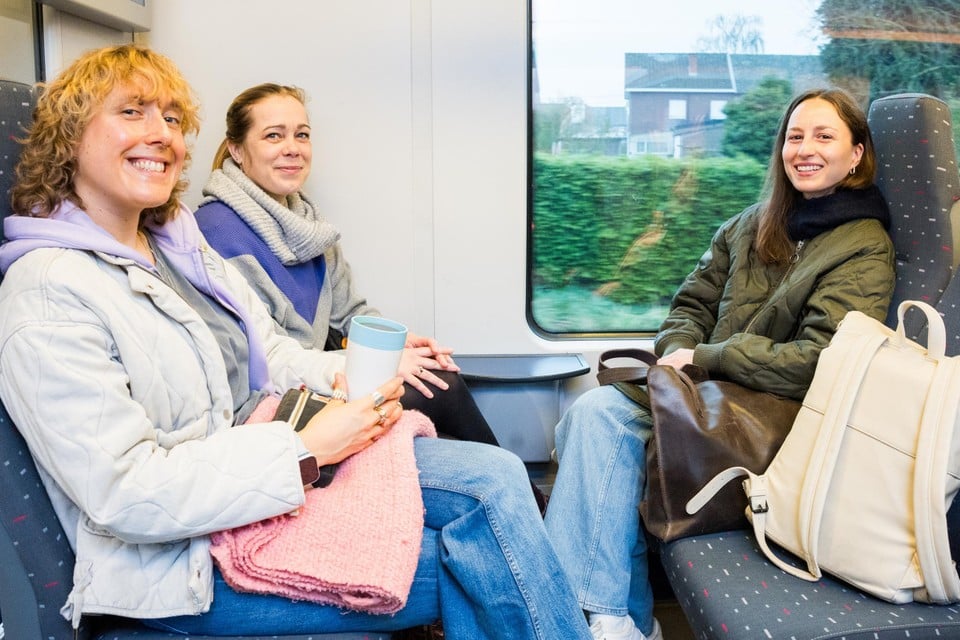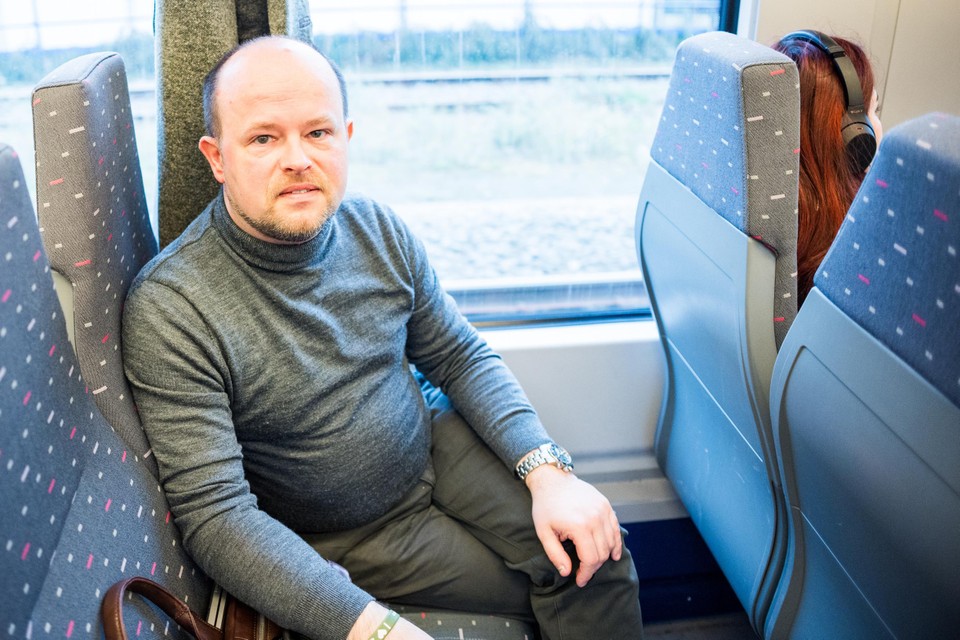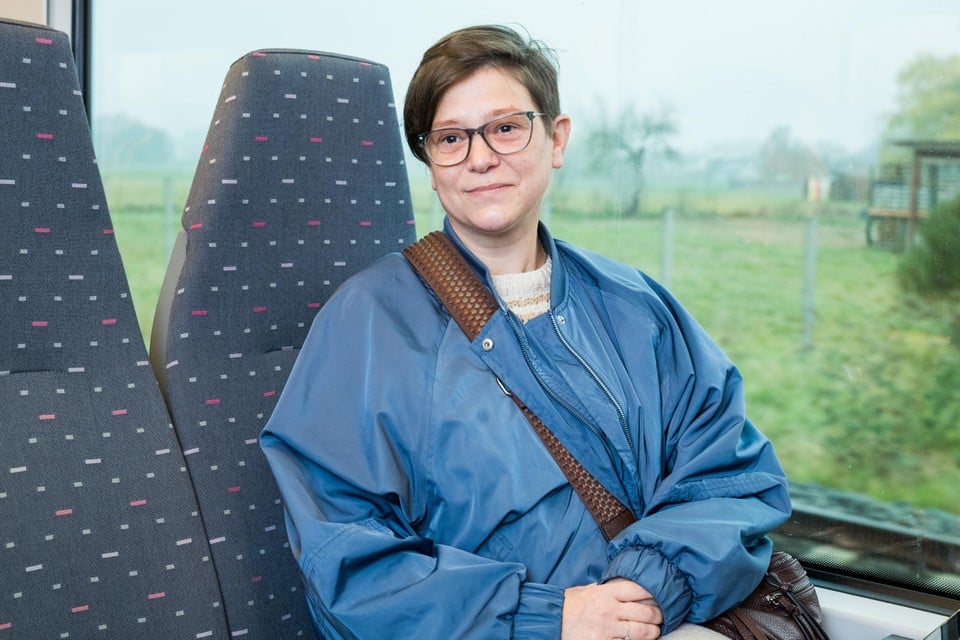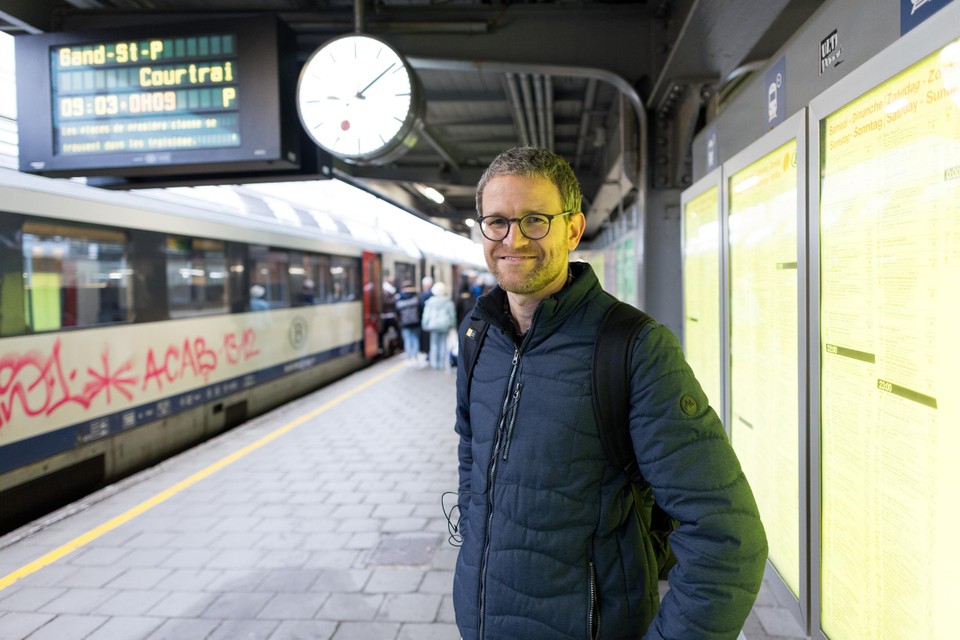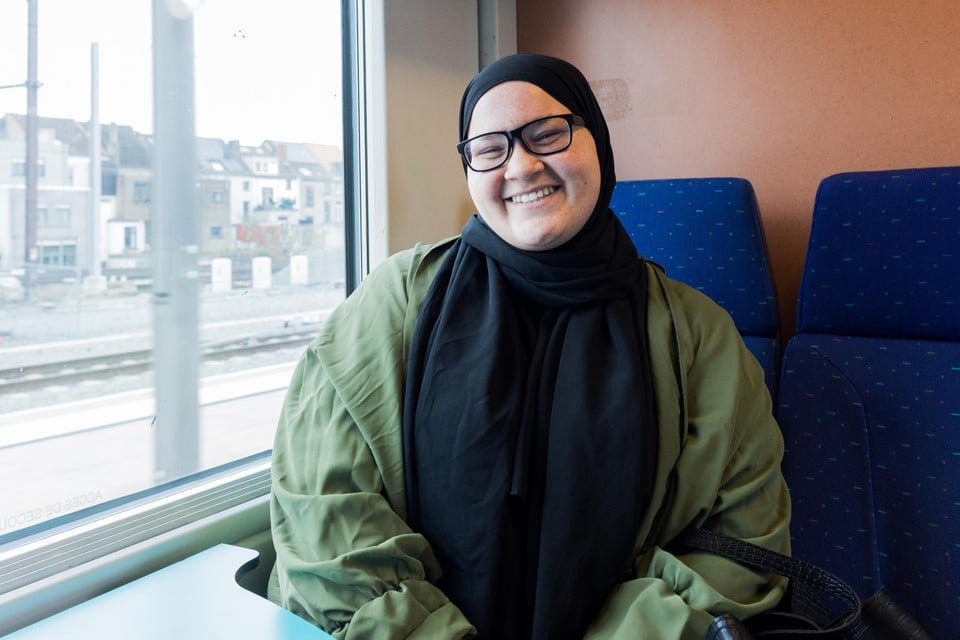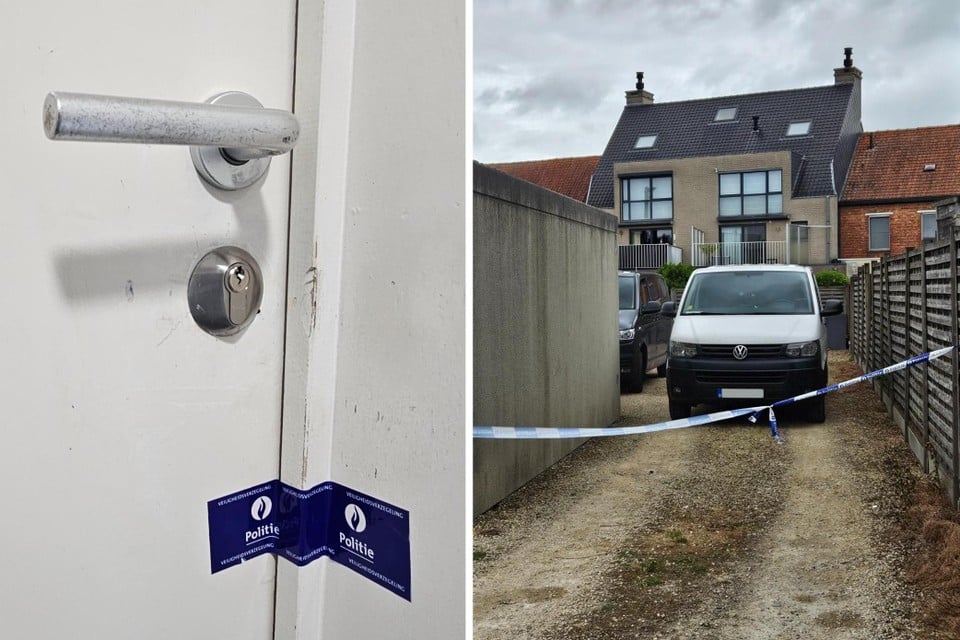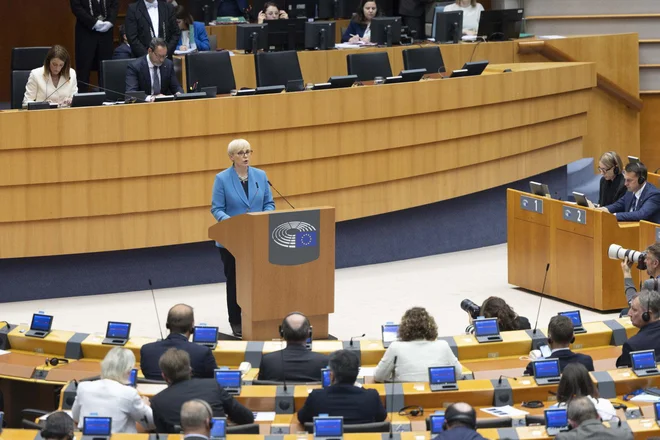The smallest lines but most malfunction: what do L-train travelers think of the strike?
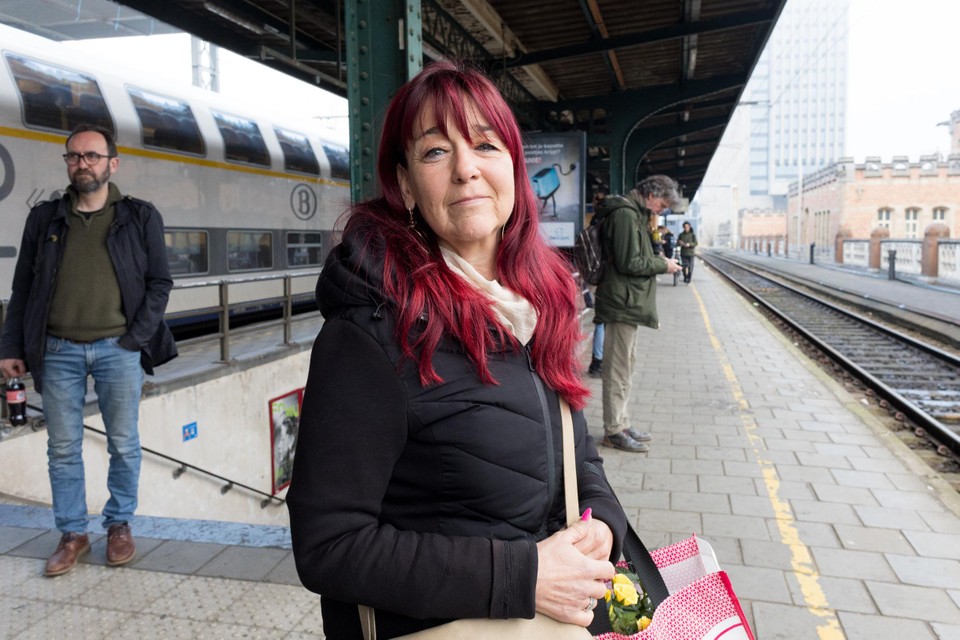
On the L-train to Dendermonde: « In healthcare we can’t just put everything flat »
At 7.20 am we board the L-train in Ghent Sint-Pieters in the direction of Mechelen. On the platform we meet Katia (58), she has been traveling to work by train for 38 years. Her route: Diksmuide-Kwatrecht or Diksmuide winning with a switch in Ghent Sint-Pieters. She is on the road for about four hours every day: two hours there and back.
Read too. On Tuesday twentieth strike day of the year on the track: « Strike load becomes unbearable »
The strikes feel double for her: she does believe in the right to strike, but sees no end to it. « The periods are getting longer and longer. They then say that the promotion lasts until 31 March, but in April they stuck again. So it is actually constant and you don’t know how long it takes. » She feels that the way the strikers express their displeasure is not the right one and feels punished by their actions. « I work in healthcare, we can’t just put everything flat there. We find the people we take care of and we can’t leave them to their fate. You can hardly say that they have to mix their own food, they can’t. As a result I feel displeasure. I just take public transport, I feel a victim of the situation. »
Katia has been doing the Diksmuide-Kwatrecht or Wetteren route for 38 years. – © Lieven Van Assche
A little further in the wagon, Stephanie (37), Jitte (42) and Ellen (34) share a four. They are all three teacher and mainly emphasize the government and not so much on the strikers. « You can be angry with the strikers, but perhaps we should be angry with the government that does not listen, » says Jitte. « I assume that they have a reason to strike. I have not been in their shoes yet, so I am not going to judge how difficult their job is. I don’t think they feel. The government gets a mandate to make decisions for us, but then they have to listen to us. »
Stephanie (left), Jitte (center) and Ellen (right) are on their way to the school where they teach. – © Lieven Van Assche
Switch in Dendermonde, on the L-train to Brussels: « At work they understand, as long as it remains sporadic »
« I have friends at the NMBS who want to work. It is especially the others who put their fellow employees in a bad light. The people who want to work must be very flexible, they only get their work schedule a day in advance. » We speak to Stijn (46) on the L-train of 8.09 hours in the direction of Brussels. He has been commuting for 20 years and has never experienced such a wave of strike. He misses communication from the NMBS, he thinks they can let something know. « I find it incomprehensible, I think half of the travelers do not even know why there is a strike. »
Stijn has been commuting for 20 years and has never experienced such a wave of strike. – © Lieven Van Assche
Jessy (44) is busy watching a Korean series on her phone. She now has enough time for that, because her travel time has more than doubled during the strike. The IC train that she usually takes does not drive: she has to board in Dendermonde and take the L-train to Brussels. « Normally I take 20 minutes, but because I have to take another train, there are 53. In the evening I also have to leave work in the past, I have to ask permission for that every time. I actually come later and have to leave earlier. At work they understand, as long as it remains sporadic, but that is no longer the case. »
Read too. Conner Rousseau rightly points out the unions: « Strike leads to the melting of support »
« I have heard that they want to stop a week every month, that is terrible. I feel that they mainly bully the travelers with that. » She understands the strikers, but believes that the strikers should also understand the travelers. « I am a civil servant myself, we all have to work longer. Everyone has to do their bit, it’s for society. »
Jessy’s travel time doubled during the strike. – © Lieven Van Assche
From Brussels-Zuid to Ghent Sint-Pieters, the P-train on the direction of Kortrijk: « I think that striking should be the very last resort »
At the Brussels-Zuid station we can take the train towards Kortrijk. The switch would normally be just too narrow, but due to a nine -minute delay we are well in time to take the train of 9.03 hours.
Kenny (40) is also waiting for the platform, we board the train with him. For him, the crowds on the trains stand out. He used to come to the station to get a comfortable place on the train, something else that is no problem. He misses the consultation in the entire strike event. « I understand that it is not nice to partly release acquired rights, but to make the country so lamb so lamb? They would better consult and use it. I think striking should be the very last resort. I agree that there must be an command, both sides, but then strike is not a good idea. » He has the feeling that the strikers come out aggressively and have already closed many slopes. In this way they win little sympathy from both the negotiator and the citizen.
Kenny used to come to the platform to get the crowds out. – © Lieven Van Assche
« I understand, but they must also think of us. » Maissae (20) takes the train to school every day. When there is a strike, she sometimes cannot go to class and therefore she lacks a lot of subject matter. In addition, she also has annual tasks and presentations, and she must certainly be present for that. « I hope it will be over soon. The exams will come, I will have to see how I would get to school. I especially hope that it has had an effect, that they should not stop anymore. I just want to be able to go to school without thinking if that will work. »
Maissae takes the train to school every day. – © Lieven Van Assche

